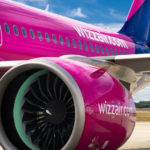FINN editor-in-chief Alan Peaford examines the challenges of transporting the COVID-19 vaccine to the developing world and how logistical challenges could result in distribution timeline of years, not months.
With the Pfizer/BioNTech vaccine having already gaining approval in the UK, European countries, the USA and UAE are already geared up for the massive task of cold storage and distribution. Having suffered months of disruption due to COVID restrictions and border closures, aviation is now at the frontline of vaccine distribution. Alexandre de Juniac, head of the airline industry association IATA, outlined the scale of the operation at IATA’s annual general meeting at the end of November.
Air cargo is “front and centre” of vaccine distribution
de Juniac said: “The value of air cargo is front and centre – at least 46,000 special cargo flights delivering 1.5 million tonnes of medical equipment. The second chapter of the story will unfold when the biggest airlift in history delivers the COVID-19 vaccines.”
FINN talked to Sanjeev Ghadia, chief executive of Africa’s largest cargo carrier, Astral Aviation, about the challenges of distribution of the vaccine in the developing world. Ghadia is also the vice chairman of The International Air Cargo Association (TIACA).
Gadhia said: “It’s going to be the biggest challenge in the history of the air cargo industry. Because you’re looking at the transportation of vaccines, which is going to start next year, being very optimistic the first quarter of 2021.”
Only 33 per cent of African countries ready to receive vaccine
He added that Africa would receive 20 per cent of its vaccine allocation in 2021, amounting to 200 billion doses for distribution to 54 countries. The World Health Organsation in Africa has also measured the infrastructural readiness of African countries towards the vaccine immunisation project. Gadhia said the findings were that “only 33 per cent of African countries are ready to receive the vaccine.”
Gadhia outlined the challenges: “When I look at the African continent, there are very few airports in Africa which can actually handle the transshipments of vaccines.”
“These airports are the large scale airports, obviously, Nairobi, Johannesburg and Addis Ababa, but you also have the smaller airports like Accra and Lagos, but you also have certain small temperature control chambers in their airports. But when you’re looking at 200 billion doses, which is the equivalent of 200 B747s flying into Africa, this is a very major exercise.”
Vaccines being developed for African market
As well as having the right ground infrastructure, aircraft also have to have the correct on-board capabilities for vaccine transportation. While the Pfizer/BioNTech vaccine has already gained approval in the UK, other vaccines are in development which would be more suitable for distribution in Africa and the developing world as they can be stored at a higher temperature without losing effectiveness.
“In the case of Pfizer and Moderna,” said Gadhia, “The requirements are minus 70. And I’m really happy to say that, in the case of the vaccines, which are being produced for Africa, mainly coming out of India, these will be transported in between two to eight degrees celsius. And in extreme conditions, it will be up to minus 20.”
“So what we really see is a situation that the Pfizer and the Moderna vaccines would actually have to be transported in special containers which can be able to withstand the temperature control requirements that are there.”
“And we believe that a lot of the vaccines which are going to be produced by Pfizer, Modena are going to be produced for the US Canadian and the European market, but I really don’t see them coming into Africa.”
Distribution will take years, not months
Co-ordination and collaboration will hold the key to distributing the vaccine across the continent. Gadhia is optimistic: “I believe that with the support of the air cargo industry and the aviation partners, I believe it’s going to be possible. But what it really requires is a very well planned and coordinated strategy, because remember, you cannot give the country all its vaccines in one day.”
Astral was involved in the distribution of the Ebola vaccine, which also required a “well-coordinated, and a well-planned approach.” But, reflecting recent reports, he said vaccine distribution would be more like a marathon than a sprint.
“We were very fortunate that we transported the Ebola vaccines in the eastern part of Congo, that was one of the largest projects we took, we had. It actually took us three years to transport 300,000 doses of the Ebola vaccine.”
“So you can imagine three years for 300,000 people. So what we really believe is that when people talk about coming out of COVID by 2021, I don’t think it’s going to be possible – just the transportation of vaccines is going to take at least two to three years.”

